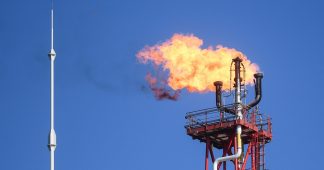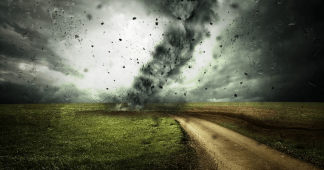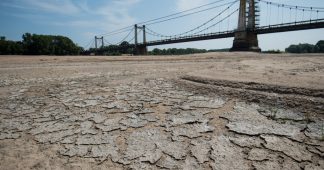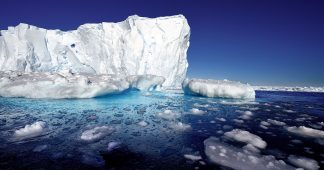By Evaggelos Vallianatos
I am not a climatologist, but I have been writing about the dangers of anthropogenic climate change since 1989. It’s like I sense the danger.
In love with nature
I love the natural world, a love I inherited from reading Aristotle who crafted the science of zoology and kept praising “perfect” nature that does nothing in vain.
I studied zoology at the University of Illinois, but not much of that study stayed with me. Earning a living on Capitol Hill and the US Environmental Protection Agency in the 1980s, 1990s, and early 2000s pretty much shut me down, and almost scared the living daylights out of me.
Ideas and policies
You can go on trying to do good for so long. Without support from enough colleagues or friends or citizens, one dries up like a plant in a drought.
Ideas become policies only when there’s a consensus for their validity and urgency and timeliness. None of these conditions have existed in America for several decades. With minor exceptions, protecting nature was never fashionable, much less desirable. The few that governed the country did not think it was necessary.
Most Americans have been too busy trying to avoid the deadly effects of poverty to pay attention to bumble bees or flowers or wholesome food or their health. And the industry triumphed no matter the costs in disease and death. I include medical doctors in that industry. Their conversion of healing to a profitable business has been unpardonable and unethical.
It’s this massive indifference towards human and environmental health that explains the perpetuation of the fossil fuels politics and its near catastrophic effects on the planet and billions of people.
Warnings
However, not all people are ethical morons or have their heads in the sand. Since 1992, United Nations climatologists have been publishing reports on climate change, how human activities like the burning of petroleum, natural gas, and coal are responsible for the slow rise of global temperatures. These reports by the experts of the Intergovernmental Panel on Climate Change provide summaries of the science of why the planet is becoming warmer and, therefore, less and less livable.
The 2018 report was so dire that a UN official described it as “a deafening, piercing smoke alarm going off in the kitchen.”
Yet similar warnings are not taken seriously by states and business corporations, particularly fossil fuel companies. It’s as if destructive forest fires, drought, famines, environmental refugees, floods, the killing of corals, the extinction of species, hurricanes, the melting of glaciers and rising sea levels are not threatening enough.
Close to 197 countries have repeatedly pledged to limit their greenhouse emissions, but global emissions continue to rise. The IPCC report of 2018 described a bleak future of the planet at an increase of the current temperature to 1.5 Celsius above the pre industrial level of temperature.
Policy makers the world over have heard these warnings at the climate meetings at Kyoto in 1997, Copenhagen in 2009, and Paris in 2015. Not only that, but they know their governments allow the “private” sector to increase investment and production of fossil fuels, the explosive charge that increases the temperature of the planet.
Dangerous fossil fuels business as usual
A report (dated October 20, 2021) by the UN Environment Program says that “Governments’ fossil fuel production plans [are] dangerously out of sync with [their commitments at the] Paris [climate conference of 2015].”
In more detail, the UNEP report explains the hidden reality behind the fancy empty talk of fossil fuel-governments:
“The world’s governments plan to produce around 110% more fossil fuels in 2030 than would be consistent with limiting warming to 1.5°C, and 45% more than consistent with 2°C. The size of the production gap has remained largely unchanged compared to our prior assessments.
Governments’ production plans and projections would lead to about 240% more coal, 57% more oil, and 71% more gas in 2030 than would be consistent with limiting global warming to 1.5°C.
Global gas production is projected to increase the most between 2020 and 2040 based on governments’ plans. This continued, long-term global expansion in gas production is inconsistent with the Paris Agreement’s temperature limits.
Countries have directed over USD 300 billion in new funds towards fossil fuel activities since the beginning of the COVID-19 pandemic — more than they have towards clean energy.”
Last chance
The global climate conference, which started on November 1, 2021 in Glasgow, UK, may be the last chance for the world to put the brakes to an otherwise irreversible drop to the abyss for both humans and wildlife on this beautiful Mother Earth.
With this shameful and dangerous record, will government representatives in Glasgow, including President Joe Biden, have the courage to trash their fossil fuel investments and denounce the fossil fuel companies for their abominable behavior? After all, risking the planet is not a petty crime.
The Glasgow climate conference will decide the fate of billions, including the fate of the planet. Antonio Guterres, Secretary General of the UN, is convinced that ignoring climate science is not an option. “We can either save our world,” he said, “or condemn humanity to a hellish future.”
Biden and other leaders should know they must defend the Earth and civilization, otherwise they will force humanity down the road of dark ages, massive famines, nuclear war, and possible extinction. Never before the Sword of Damocles was so close to the heart of life as it is now in late 2021.
Evaggelos Vallianatos, Ph.D., former Capitol Hill and US EPA analyst, is a historian and environmental strategist. He is the author of hundreds of articles, and 7 books, including Poison Spring (2014) and The Antikythera Mechanism (2021). He teaches at the Lyle Center for Regenerative Studies, California State Polytechnic University, Pomona.
We remind our readers that publication of articles on our site does not mean that we agree with what is written. Our policy is to publish anything which we consider of interest, so as to assist our readers in forming their opinions. Sometimes we even publish articles with which we totally disagree, since we believe it is important for our readers to be informed on as wide a spectrum of views as possible.











